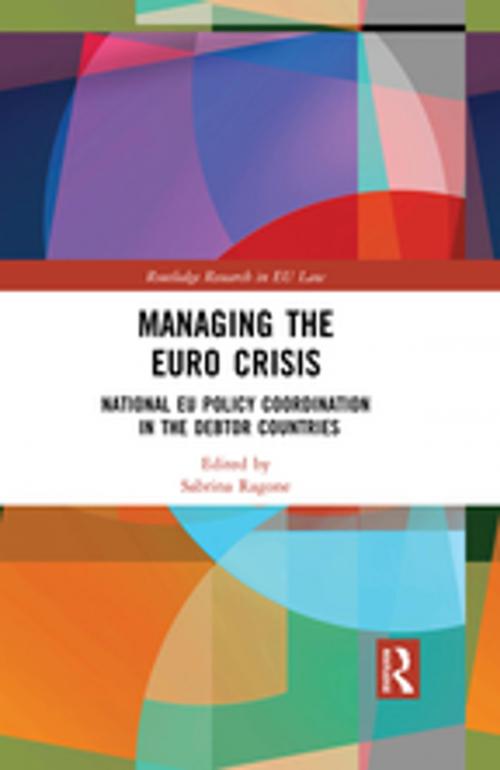Managing the Euro Crisis
National EU policy coordination in the debtor countries
Nonfiction, Reference & Language, Law| Author: | ISBN: | 9781317301509 | |
| Publisher: | Taylor and Francis | Publication: | November 22, 2017 |
| Imprint: | Routledge | Language: | English |
| Author: | |
| ISBN: | 9781317301509 |
| Publisher: | Taylor and Francis |
| Publication: | November 22, 2017 |
| Imprint: | Routledge |
| Language: | English |
The financial crisis posed new challenges for the administrations of Eurozone countries, including: how to respect EU obligations when the economy is under stress? How to improve the overall implementation of EU policies and domestic reforms? How to negotiate effectively with the Troika and then quickly and efficiently fulfil the requirements of the Memoranda of Understanding?
This volume offers the first analysis of EU coordination by national executives in the light of the legal and political consequences of the crisis, using case studies of five severely affected Member States: Cyprus, Greece, Ireland, Italy, and Portugal. It examines from an interdisciplinary perspective how they have adapted their coordination systems since the outbreak of the crisis, shedding light on the adjustments undertaken by domestic administrations.
The comparison reveals that in this process Prime Ministers and Ministers of Finance were empowered in a common shift towards the centralization of EU coordination.
The financial crisis posed new challenges for the administrations of Eurozone countries, including: how to respect EU obligations when the economy is under stress? How to improve the overall implementation of EU policies and domestic reforms? How to negotiate effectively with the Troika and then quickly and efficiently fulfil the requirements of the Memoranda of Understanding?
This volume offers the first analysis of EU coordination by national executives in the light of the legal and political consequences of the crisis, using case studies of five severely affected Member States: Cyprus, Greece, Ireland, Italy, and Portugal. It examines from an interdisciplinary perspective how they have adapted their coordination systems since the outbreak of the crisis, shedding light on the adjustments undertaken by domestic administrations.
The comparison reveals that in this process Prime Ministers and Ministers of Finance were empowered in a common shift towards the centralization of EU coordination.















